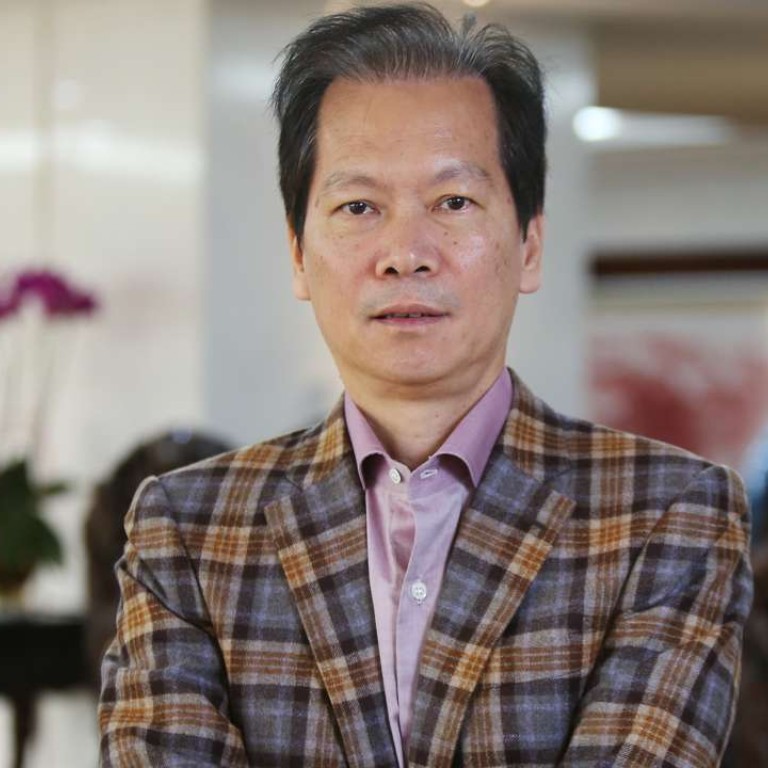
Get tougher on Hong Kong localists to stop them damaging business in city, tycoon says
Shenzhen-based Chen Hongtian says independence activists ‘don’t want Hong Kong to be good’ and urges the government to be firmer in upholding Basic Law
The chairman of a club that comprises 140 mainland Chinese and local tycoons has urged the Hong Kong government to get tougher with pro-independence localists to stop them damaging the business environment.
Shenzhen-based Chen Hongtian, who chairs the Harmony Club, told the Post he was concerned about Hong Kong’s political development and was thinking about slowing his own investments in the city and diversifying elsewhere.
“Anyone who has a clear mind knows they are causing damage and messing around. They don’t want Hong Kong to be good,” he said.
“We are speaking for Hong Kong businessmen ... we are worried that they will damage the business environment.”
Chen said Beijing’s recent interpretation of Hong Kong’s mini-constitution – effectively disqualifying lawmakers-elect Sixtus Baggio Leung Chung-hang and Yau Wai-ching for proclaiming a “Hong Kong nation and insulting China during their oath-taking on October 12 – was a positive and justifiable move.
“I think the Hong Kong government should be firmer in upholding the Basic Law. Such people should not be allowed in the establishment.
“ You would be penalised if you say anything against the queen during her rule. Now you talk about the whole country and want to become a legislator? Tell him to get out of Hong Kong.
“I think the Hong Kong government can be even tougher and firmer.”
The Harmony Club was set up in September 2012 to promote cooperation between the two cities’ governments and businesses. Its prominent members, 80 per cent of whom are said to have permanent residency in Hong Kong, have business assets totalling 1.5 trillion yuan (HK$1.68 trillion), according to Shenzhen media.
Early this month he led nearly 100 club members – including Tencent chairman and chief executive officer Pony Ma Huateng, Lee Yin-yee, founder of Xinyi Glass Holdings, and Wong Kwong-miu, founder of Centralcon Group – in publishing political adverts in several Hong Kong newspapers that condemned Leung and Yau.
In the advert, the tycoons said the Youngspiration should get out of the country as had they publicly insulted China and trampled on national dignity.
Chen believed the city’s economy would have been even better if independence advocates had not stirred up such problems. And he said many Hong Kong people had forgotten there was “no democracy” before the handover in 1997 and that the city’s governor was appointed by the British government.
Leung and Yau could not be reached for comment on Sunday.
But in an interview with RTHK’s The Pulse programme on Sunday, he said he did not understand why Beijing had to interpret the Basic Law to tackle independence sentiments.
“The issue had been handled by the Hong Kong court,” he said.
But he said he was satisfied that the Basic Law and the 1984 Joint Declaration were strong enough to protect Hong Kong’s way of life.
Rita Fan Hsu Lai-tai, a member of the National People’s Congress Standing Committee, said on Commercial Radio on Sundaythat the committee had been forced by the Youngspiration duo to interpret the Basic Law because not doing so would harm the city.

